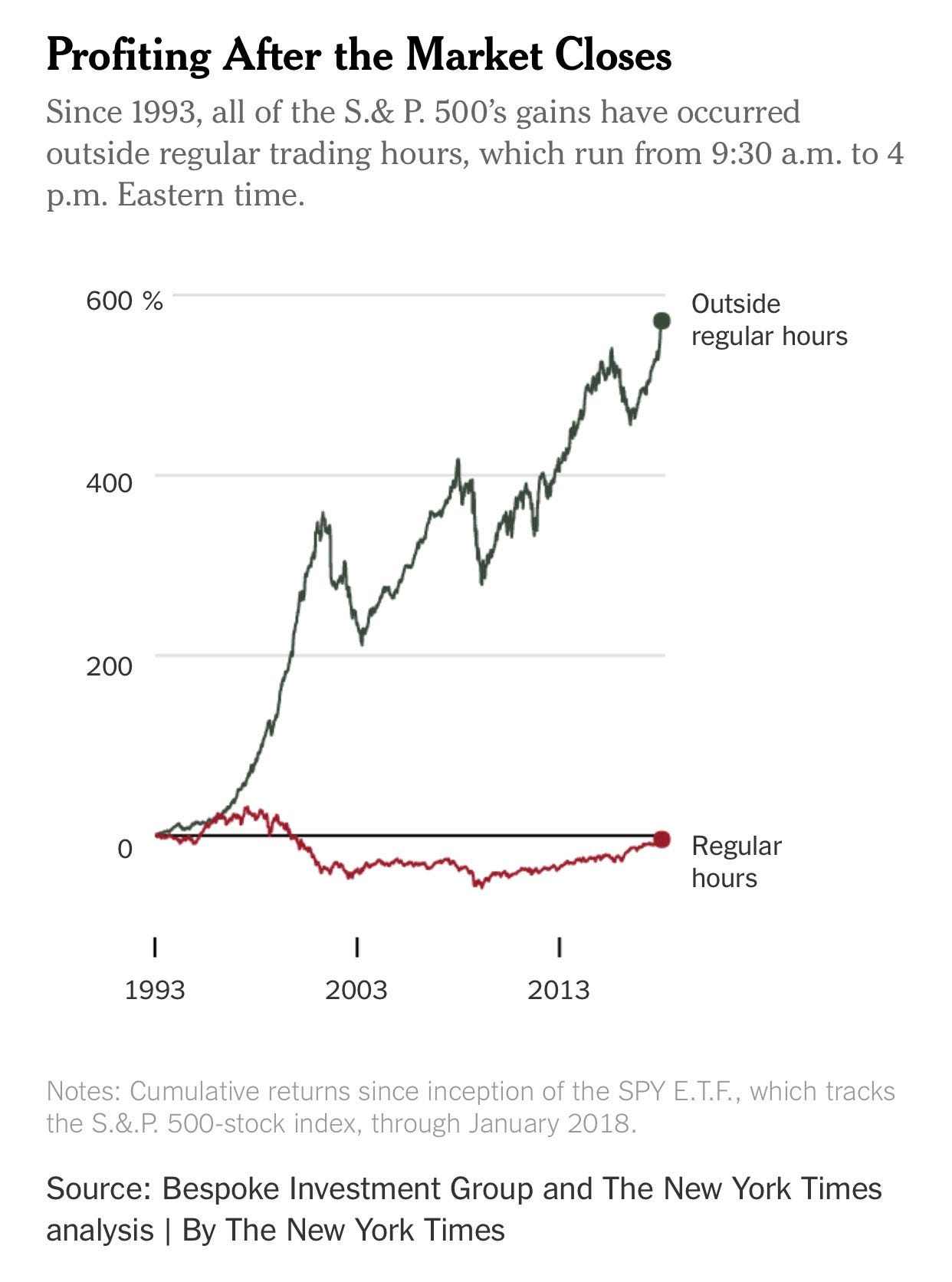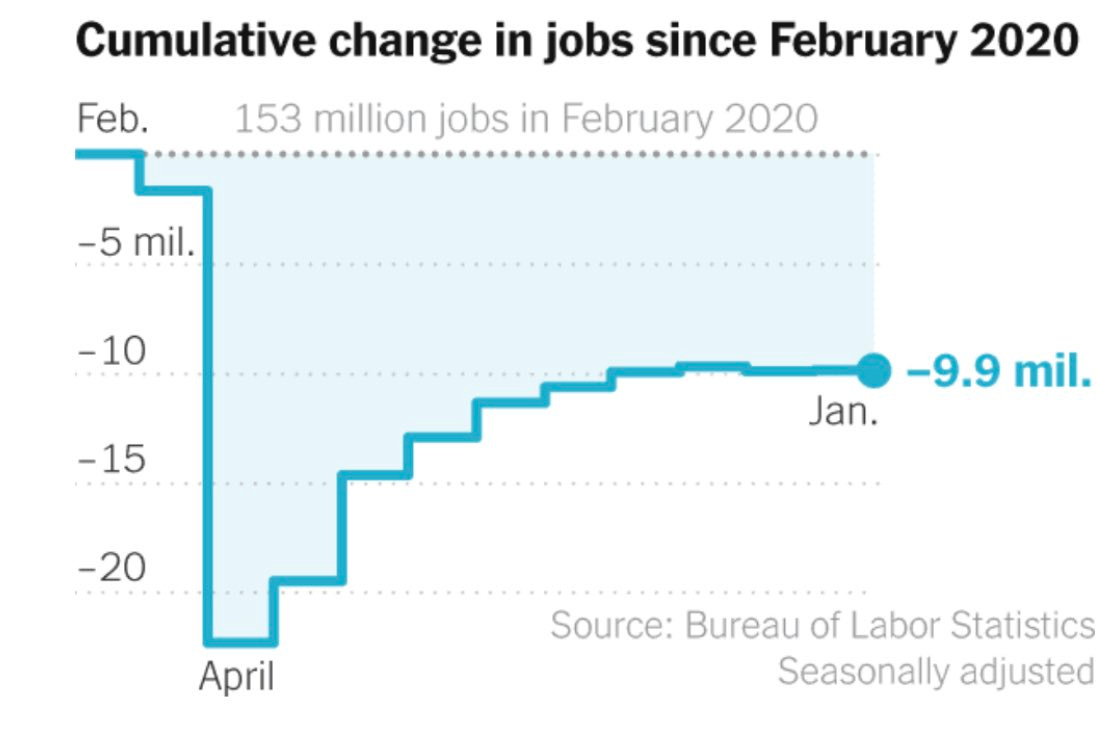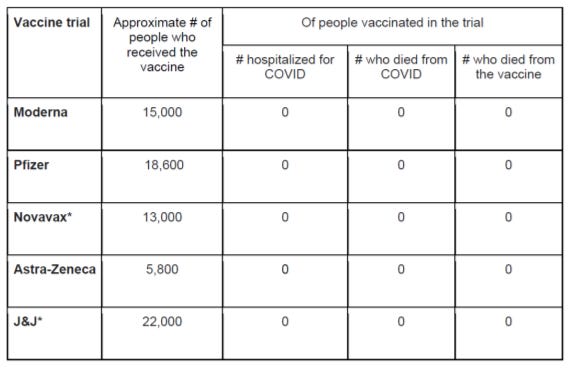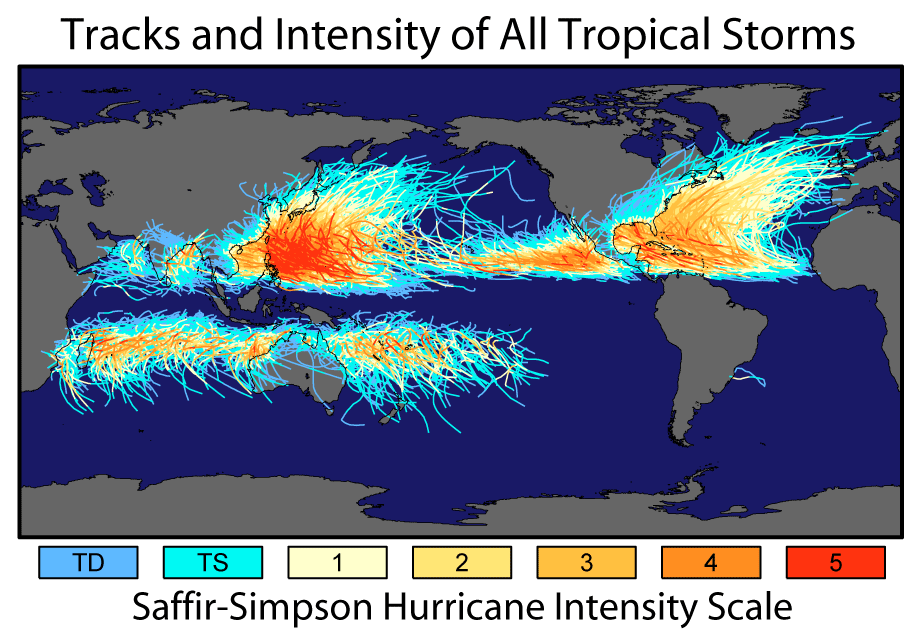88: Trading Happiness for Misery, Google.au, After-Hours, Ford's EVs, Cathie's ARK, RISC-V Open-Source GPUs, YC for Truckers, Clean Energy Future, and Any Vaccine
"Sometimes it’s important to remember what's in front of our eyes."
I asked Miles after the gig, "Miles, what am I supposed to be doing up there?"
He said, "When they play fast, you play slow. When they play slow, you play fast."
—Anecdote about Miles Davis
How much would someone have to pay you to trade most of your happiness for misery for the next 20-30 years?
Sounds like a really bad deal, right? Sounds like something where you’d ask for an exorbitant amount, putting a really high price on your happiness, if you’d be willing to make a deal at all (some may say it’s priceless, non-negotiable, at the top of the pyramid, without it the money is meaningless, etc).
Yet it’s not even a theoretical question. Lots of people sleepwalk into that choice everyday, and a lot of the time, they make the deal for peanuts, or sometimes zilch.
If you’re in a bad relationship that you could get out of (I’m not thinking Annie Wilkes), but don’t, this may be it. If you’re in a hated job that you’re doing just for the money, that’s a deal you’re making.
Or even worse, if you could get another job that would make you happier and that pays the same or more, but aren’t moving because of inertia/fear/whatever, that’s also a decision on that heavy question.
Many people could get paid to be happier, they could spend their life with a partner who’s their best friend and better in every way than the toxic one they are with, if they just did a few things, made a few moves, suffered a few tough moments of transition.
Life is trade-offs, yes, but life is also action vs inaction, actively steering the ship vs going passively with the flow.
O Captain! My Captain! Right?
(wait, am I turning into Dear Amy?)
🛀1 If you claim to want to learn from people who think differently, but then as soon as someone is being kind of weird or unusual you try to make them feel bad for not fitting in, you don't really want to learn from people who think differently.
✍️ When it comes to ideas/information in this interconnected world, most people are a mix of various ratios of: creators, curators, amplifiers, appreciators, and cheerleaders.
I’d probably rank myself on the low side on #1, much higher on #2-3-4, and ok on #5.
What’s your mix?
I guess a different discussion is how culture puts different value on each of these. It’s obvious that creators are the most romanticized and revered. But it’s all inter-connected. It’s like saying that only the queen is important it an ant colony; look at how long the colony survives without workers or fighters or whatever.
Not everybody will be an olympic athlete or a supermodel or a Pulitzer or Nobel winner or billionaire CEO/founder, and feeling bad because you aren’t is unproductive misery. I think it’s more important to strive to be the best version of what you actually are trying to achieve and enjoy doing.
What matters is that you’re happy playing your part, doing it as well as you can. Not that others find it impressive. Chasing this kind of external validation is the road to misery (inner scorecard and all that), in good parts because others are too busy thinking about themselves to spend much time thinking about you and validating whatever it is you’re doing.
Investing & Business
So all this time RenTech just bought the close and sold the open on leverage..?
Good thing for those of us who own stocks overnight and don't sell at 4PM and buy back at 9:30 AM every day...
(If you’re not a financial person, what this shows is that most big stock price moves are on earning releases and big corporate news that happen before and after trading hours.) h/t Alex K.
‘Ford boosts investment in electric and autonomous vehicles to $29 billion through 2025’
Last week in edition #85 about ‘GM to go 100% EV by 2035’, I wrote:
“expect Ford and others who haven’t already made commitments to follow…”
Well, right on time:
Ford Motor plans to invest $29 billion in electric and autonomous vehicles through 2025, the company announced Thursday [...]
Ford said its plans include $7 billion in self-driving vehicles and $22 billion in electrified vehicles, up from $11.5 billion through 2022. But not all the announced cash in EVs is new. The company is including previous investments of roughly $7 billion since 2016, bringing Ford’s new investment commitment to $10.5 billion through 2025. (Source)
Not quite the line in the sand that GM has traced, but they’ll get there.
Every one a human story
Sometimes it’s important to remember what's in front of our eyes.
Jason Zweig on Cathie Wood and ARK
The inimitable Zweig wrote a piece on the hottest brand right now (it’s not GME):
Since its launch in October 2014, ARK Innovation, the firm’s largest fund, has delivered an average return of 39% annually. [...]
ARK managed a total of $11.4 billion at the end of March 2020. By year end, that had swollen to $58.2 billion. [...]
ARK is already a big owner of some small stocks. At Israeli biotech company Pluristem Therapeutics Inc., with a total stock-market value of $219 million, ARK holds 15.5% of the shares outstanding. That’s three times as much as all other institutional owners combined. At a French biotech, Cellectis S.A. , with a $900 million market value, ARK owns 11.5%—more than the next 11 largest holders combined. [...]
According to FactSet, 43.5% of ARK’s total equity holdings are in stocks of which the firm owns at least a tenth of all shares outstanding.
If ARK ever needs to sell any of those holdings, who will buy in enough bulk to keep prices from collapsing?
You can read the whole thing here.
Y Combinator, but for Truckers
In Need of Truckers, Amazon Plans Incubator to Create More Shipping Companies
Amazon is finding it can’t hire enough trucking companies to haul all its freight. So it decided to help would-be trucking entrepreneurs start their own firms.
Source. h/t Jerry Capital
Amazon Orders Natural Gas Engines for U.S. truck fleet
Speaking of Amazon truckers (gotta love when you have such smooth segues that just fall in your lap), the company has ordered “more than 1,000 truck engines that run on compressed natural gas” to start moving away from the more polluting diesel trucks, which are worse on CO2 than CNG by about 30%, but also by orders of magnitude on particulate matter emissions (PM2.5), the stuff that causes smog and all kinds of lung and heart issues, and is now linked to cancer.
This will be for heavy duty trucks, and the engines will be made by a joint venture between Cummins and Westport Fuel Systems. For the smaller, last-mile delivery vans, Amazon has already made a big order for EVs from Rivian, as I wrote about in edition #36.
Interview: Rob Koyfman, Koyfin’s Daddy
Caveat: As pointed out in the intro of edition #78, I’m a recent investor in Koyfin. But I did it because I’ve loved the product for a couple years prior, so if you can’t trust what I say now, go back and see what I said back then (which is the same that I’m saying now).
Anyway, fun interview with Rob on the Opto Sessions podcast, covering both Koyfin’s backstory and goals (even some user numbers and some roadmap items! juicy!) as well as some trading/invest shop talk:
That comment at the end made me want to go visit Tel Aviv.
Interview: Ryan Petersen, Founder and CEO of Flexport
Jason Calacanis interview with the founder of Flexport, largely talking about how the business of shipping works and how Flexport is trying to move it from phone calls and paperwork to software. Also some interesting discussion on what they saw during the pandemic as someone who’s seeing a lot of the commerce between China and the rest of the world. (you can also get an audio-only version)
I’ve heard a few interviews with Ryan over the years, and I just like him. I don’t know that much about the details of his business (S-1 coming, Ryan?), but it’s certainly an interesting and useful one. Such a low-hanging fruit to digitize this massive industry.
I’ve also been impressed by the work that they do at the Flexport.org Foundation, which they discuss a bit in the interview. During the pandemic they helped source and get shipped a crapload of protective equipment to healthcare workers that didn’t have enough, at a time when everybody was scrambling to get it and few organizations had the know-how to source it around the world.
Follow-Up on Google vs Australia
Tech giant Google on Friday launched a platform in Australia offering news it has paid for, striking its own content deals with publishers in a drive to show legislation proposed by Canberra to enforce payments, a world first, is unnecessary. (Source)
The idea being that if they can strike deals with enough publishers, it would show that the proposed law isn’t necessary. And since the threat of the law is hanging over Google’s blue-red-yellow-and-green’s head, you can expect the publishers to be able to get really good terms.
But from Google’s point of view, almost anything is better than that law that would force them to tell publishers about algorithm changes that “would impact them” weeks in advance (I mean, why not also ask Apple to show them next year’s iPhone too, so their coverage can be written at a more leisurely pace?).
High Quality Classifieds, Octahedron Edition
Octahedron Capital is hiring: “2-4 interns this summer to join the team in San Francisco. Ideally our newest colleagues work with us in SF, but similar to 2020, we will also host remote interns.”
Ram Parameswaran gives the rest of the details in this thread.
If interested - please email ir@octahedroncapital.com with
1. A 2-page max narrative on how you exhibit the four uncoachable traits
2. A 2-page max narrative on your insights in crypto and developer tools
3. Linkedin, Substack, Twitter, Medium or resume
So is Tiktok still wondering if they need to do that deal with American companies?
Science & Technology
‘Why You Should Take Any [COVID19] Vaccine’
Zeynep Tufekci talking some sense:
With the COVID vaccines, we have clearly hit a home run, on all of them. They are all tested thoroughly. There were no shortcuts, just due speed. We had all the requisite trials conducted. Part of the reason that the clinical results from the trials are so clear is that these vaccines are amazing—when something works this well, their effectiveness is easy to observe. (The sad counterpart is that their efficacy is easier to observe during such a raging epidemic: the more cases there are, the more chances for the vaccine to demonstrate how well it works). [...]
a more transmissible variant is terribly worrisome—more so than one that was lethal at a similar percentage, because lethality is a linear measure, while transmissibility is an exponential threat. One of my favorite quotes from this year is from Dylan H. Morris: “You cannot finesse the steep part of the exponential.” [...]
Ok, I’m making a break here, because this paragraph is important:
Since the beginning of the trials, all trials, there has not been a single death or hospitalization among people vaccinated. Not one. Zero. Not for Moderna, not for Pfizer/BioNTech, not for Oxford/AstraZeneca, not for Sputnik, not for J&J, not for Novavax.
The reason I emphasize this is that there is a mismatch between what the trials measure, which is “any disease”—because it is a better metric to get us where we need to arrive quickly—and the metrics we should be concerned about for purposes of public health and ending this pandemic. The public conversation around it has been less than productive, comparing the “efficacy” numbers, as if they had much clinical significance. Is one vaccine better than the other? [...]
Based on the existing data, and to the best of my understanding of having read every paper, authorization application and preprint on the efficacy of these vaccines, I can, without a hesitation, say that of the ones I know are being considered in various places in the US, UK and Europe—Moderna, Pfizer/BioNTech, J&J, Oxford/AstraZeneca, Novavax—I would be happy with receiving *any* of them. [...]
If we were to find real efficacy differences, we’d give the higher efficacy ones to the elderly (whose immune systems tend to work less well). But, as a country, and as the world, as things stand, all of these vaccines will do the job of eventually getting us out of this pandemic—once enough people are vaccinated.
You can read the whole thing here.
RV64X: Building an Open-Source GPU ISA Based on RISC-V
RISC-V is sprouting interesting projects, like this GPU offshoot targeted not at the high-end like Nvidia and AMD, but at other varied more low-end use cases, or simply just weird edge cases where you could use something a bit more custom:
[the devs] believe the ecosystem lacks a scalable graphics core for more mainstream applications for things like kiosks, billboards, casino gaming, toys, robotics, appliances, wearables, industrial human-machine interfaces, infotainment and automotive gauge clusters. [...]
driven by the desire to create a small, area-efficient design with custom programmability and extensibility. It should offer low-cost IP ownership and development, and not compete with commercial offerings. (Source)
h/t Brad Slingerlend
‘the largest construction project in Danish history’
Denmark is to push forward with plans to build a huge artificial island in the North Sea that will act as a major renewable energy hub and cost billions of dollars to develop. [...]
The first phase — set to have a capacity of 3 gigawatts (GW) — will involve approximately 200 offshore wind turbines sending electricity to the hub, which will distribute it to nearby countries via the grid.
In future, the capacity of the hub could be expanded to 10 GW. This, Danish authorities say, would be enough to power 10 million homes in Europe. Depending on its final capacity, the island will cover an area between 120,000 and 460,000 square meters. (Source)
Ambitious. I like it. Time to build.
And for critics of building an artificial island, remember that this isn’t a choice between a perfect solution with zero impact and this. Versus what it replaces, dumping a bunch of dirt in what is likely a shallow part of the sea area to replace a bunch of coal and gas plants in Europe is an extremely big improvement. Don't let the perfect be the enemy of the good.
Clean Energy ‘Space Race’ Reshaping Geopolitics
On the topic of green energy, it’s interesting to think about the ways in which is will reshape large and important parts of the world:
as the energy system changes, so will energy politics. For most of the past century, geopolitical power was intimately connected to fossil fuels. The fear of an oil embargo or a gas shortage was enough to forge alliances or start wars, and access to oil deposits conferred great wealth. In the world of clean energy, a new set of winners and losers will emerge. Some see it as a clean energy “space race”. Countries or regions that master clean technology, export green energy or import less fossil fuel stand to gain from the new system, while those that rely on exporting fossil fuels — such as the Middle East or Russia — could see their power decline. [...]
New power structures will emerge along with the transition. “The [old] levers of control, a lot of them will dissipate and simply cease to exist. [...] This is a completely new constellation, so we cannot think just like the old days,” he adds. “There is a new class of energy exporters that may emerge on the global scene.” [...]
“There is an inflection taking place,” he says, from behind the frames of his red glasses in a video interview. “If you compare the world today to the world 18 months ago, the big difference is that . . . only 25 per cent of the world had a decarbonisation horizon. Today, 75 per cent of the world economy has a decarbonisation horizon. This is a major shift.”
Source. h/t Alex Rubalcava
NASA’s Historic Tropical Cyclone Tracks
the tracks of nearly 150 years of tropical cyclones weave across the globe in this map. The map is based on all storm tracks available from the National Hurricane Center and the Joint Typhoon Warning Center through September 2006. The accumulation of tracks reveals several details of hurricane climatology, such as where the most severe storms form and the large-scale atmospheric patterns that influence the track of hurricanes. (Source)
Interesting how there’s this band around the equator that is almost free from cyclones/hurricanes. I don’t know the exact mechanism, but obviously the Earth’s rotation is causing the storms to deviate North in the Northern hemisphere, and South in the Southern one.
h/t Massimo
The Arts & History
‘In & Of Itself’ (2021, Hulu)
Saw this film, which is basically a filmed live show (or maybe, kind of, a documentary about multiple shows?) and really enjoyed it. I recommend it, but I also recommend watching it knowing as little about it as possible (similar to my recommendation for ‘Palm Springs’ (2020) in edition #73.
Here’s the Hulu link:
h/t to Kevin Holloway for recommending it to me in the most neutral, non-spoilery way possible.
Writing Insight I Got from John Fowles
Ok, this one is a bit convoluted, but I’ll do my best to make it understandable:
So Elliot Turner published his 2020 letter (I still haven’t had a chance to read all of it — too many things I want to read!), and one of the subtitles was “The World According to GARP”, which is a play on a great John Irving novel, which got me talking to Jim O’Shaugnessy about Irving and about John Fowles, another fiction author that I rank very high on my personal list of faves.
If you want to give Fowles a try, I’d recommend starting with ‘The Magus’.
Anyway, the Fowles discussion reminded me of another one of his books that I really enjoyed ˜15 years ago: '‘The French Lieutenant’s Woman’.
There are many interesting choices made by Fowles in it, but one has really stayed with me for some reason.
At one point, one of the characters travels by train (it takes place in the UK in the victorian era), and a stranger that seems a bit out of place is sitting across from him.
You quickly realize by the way it’s written that the stranger is actually the narrator of the story, the author. He inserted himself in the story, and he looks at his own character and judges him from inside the fiction; wonders about how he should finish the story, what conventions are expected in a victorian novel, should he break them, etc.
The narrator-in-the-train even takes out a coin and flips it to make a decision, as his fictional character looks on in puzzlement.
I don't think I had thought about it too consciously since, but I now realize that this scene was an influence on how I think about writing now.
Anything is permitted, as long as you make it work.
Yes, that’s my new marker for “shower thought”.







